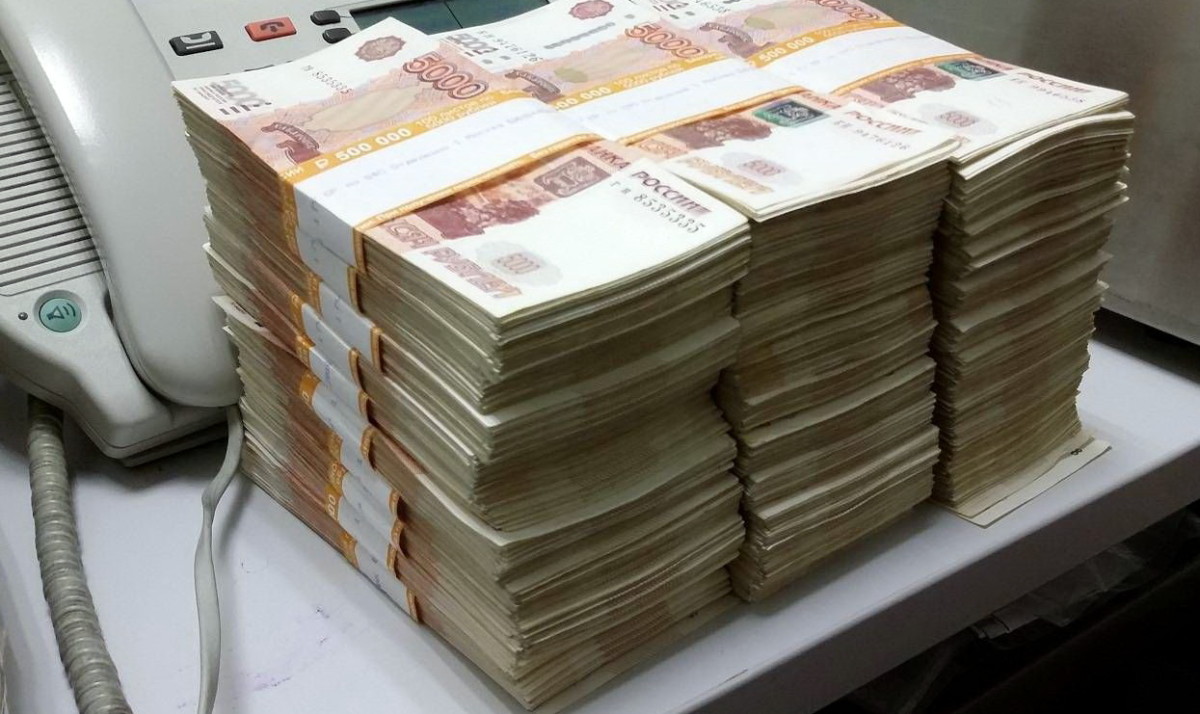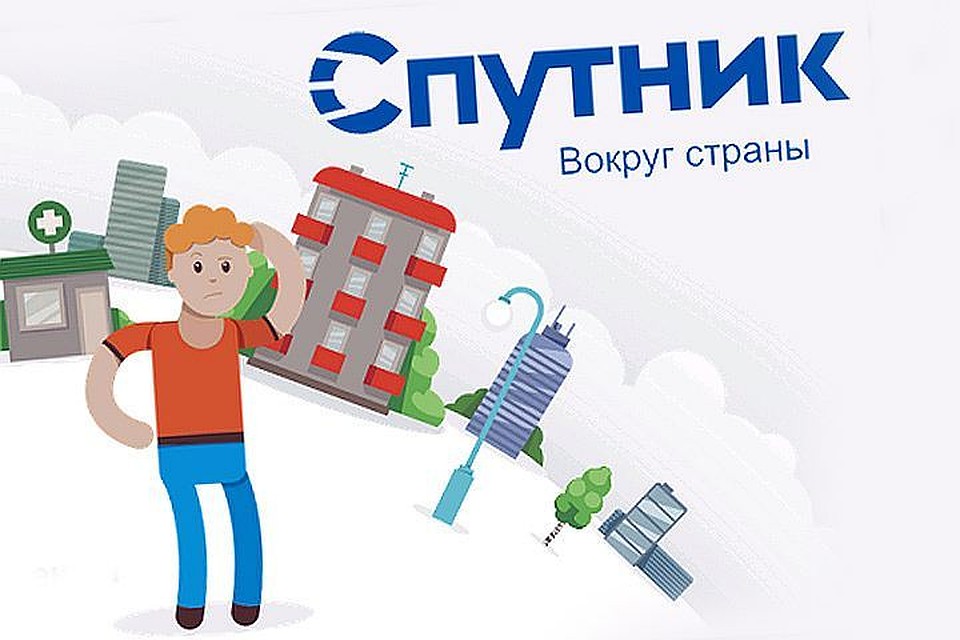Background: the state Internet search engine "Sputnik" and its complex history

There are a lot of interesting state projects in Russia that benefit citizens. But there are projects with a complex fate. One of them is the state Internet search engine “Sputnik”. On Habré news of him first appeared in 2013.
Then it was reported that the search service will start in the first quarter of 2014. At the same time, at the time of publication of the news, the project existed for about three years, with a budget of about $ 20 million. The project initiators expected that the search engine would be promoted at the state level, and the officials had to use such a system by default. Today's "Background" is devoted to the history of the search engine and the results of its work.
How it all began
For the first time, the idea of creating a state search engine was talked about in 2008 in the administration of Russian President Dmitry Medvedev. Officials decided to create a “government search engine” to enable its users to get acquainted with the official news. On Google, Yandex and other search engines, news about any state-scale events was passed through the lens of journalists and did not always correspond to the official point of view on the event.
Project implementation and first results
The search engine was launched, and immediately after its appearance, some publications began to publish reports about the successful work of the search engine and the flow of new users. In principle, during the first year, the developers implemented a lot of new services, including mapping and news, as well as search by pictures, video, weather forecast, exchange rates and even their own browser.
Were also developed services that can be called socially significant:
- "My Home" - search for government organizations near the house;
- "Drugs" - search for pharmaceuticals in pharmacies;
- “Convenient Russia” - recommendations on public services, including the form of an appointment with a doctor;
- “Sputnik. Children” - children's search service;
- "My region" - search for organizations.
The development team included 150 people, over time the staff was increased to 250 specialists.
The results in 2014 were not a record, but impressive :
- Over the year, the search engine has filtered 2 billion pages with dangerous content;
- The service was used by several million people;
- On the first day of work, 550 thousand people came to the Sputnik;
- The number of pharmacies displayed in the "Medicines" section increased to 25 thousand;
- Sputnik maps were used by 85 partners, including the administration of St. Petersburg and the Kazan public transport service;
- "Sputnik" was named the most safe for children search engine Runet (although the assessment was carried out by a certain "League of Safe Internet");
- In April 2015, Sputnik was visited by 800 thousand people;
- In the ranking of Russian sites search engine ranked 2548th.
How much was invested in the project?

Initially, according to representatives of Rostelecom, investments exceeded 580 million rubles. These are funds invested in the project until 2014.
In 2015, another 800 million rubles were invested in Sputnik , in particular, on the development of BigData processing technologies. The main investor is Rostelecom, according to the Sputnik General Director, investments are provided not only in the form of money, but also “infrastructure and technology”.
Then, in 2015, it was reported that the new technologies of Sputnik were planned to be used within the company itself, to form offers and services that could be sold to customers. According to the vice-president of Rostelecom, Alexey Basov, the technology of the state search engine made it possible to “optimize the overall network performance, increase the average revenue per user (ARPU), create customer behavior patterns and more efficiently manage the funds.”
The revenue of the resource in the same 2015 amounted to 136.6 million rubles, a loss - 150.5 million rubles.
When did Sputnik start having problems?
They began almost immediately after launch. Initially, the developers counted on about 1 million unique visitors per month. In May 2014, KPIs were even exceeded, since 1.9 million people aged 12 to 64 years used the “Sputnik” and its services. But in June, it was reduced to 508 thousand. Later, the attendance of the public search engine and completely ceased to be evaluated.
 A year later, Sputnik’s audience was tried to be assessed with the help of supporting tools — for example, the TNS report on Russia's most visited resources. In April 2015, the Osp.ru portal with an audience of 355 thousand people 12–64 years per month and Topface.com with 399 thousand “Sputnik” were not in the report, which means that its audience was lower than indicators. Moreover, sources then reported that the traffic of the public collector was at the level of 100 thousand people per month.
A year later, Sputnik’s audience was tried to be assessed with the help of supporting tools — for example, the TNS report on Russia's most visited resources. In April 2015, the Osp.ru portal with an audience of 355 thousand people 12–64 years per month and Topface.com with 399 thousand “Sputnik” were not in the report, which means that its audience was lower than indicators. Moreover, sources then reported that the traffic of the public collector was at the level of 100 thousand people per month. In addition to the main product, the developers of Sputnik released several others, including the Sputnik browser and its mobile version. In June 2015, the application was downloaded only about 10 thousand times from Google Play.
In 2016, there was almost no news about the search engine, but in 2017, representatives of Rostelecom said that Sputnik did not take place, as the search engine that is popular in runet. As a search engine, he was unable to occupy 1% of the search market for the Russian segment of the Internet. If the number of transitions from Google and Yandex in 2017 amounted to billions, then at Sputnik this figure was about 100 thousand.
How did the satellite solve its problems?
Sputnik's main investor is Rostelecom, which owns 77% of the company. The management of Rostelecom in the middle of this year asked the Sputnik team to optimize the activity of the search portal . The key areas of optimization, it was decided to choose the following:
- Refusal to develop products that have no obligation to pay on the part of counterparties,
- transfer of directions demanded by Rostelecom from Sputnik to Rostelecom.
At the same time, it was stipulated that the products remaining in Sputnik provide the company with at least no loss in 2018.
According to third-party experts, in practice this decision meant reducing a part of the search portal staff, integrating the most interesting from a market point of view projects in Rostelecom, the latter’s requirement for government agencies interested in Sputnik to pay for unprofitable products.
What's up with “Sputnik” now?
Well, in August of this year it became known that Rostelecom achieved recognition of Sputnik LLC as a bankrupt. The bankruptcy procedure of a legal entity was initiated at the end of February of this year by applying to the Moscow Arbitration Court. At the end of May, the court considered the operator’s demands reasonable and introduced an observation procedure for Sputnik, approving the temporary manager of the company, Egor Nazarenko, a member of the self-regulatory organization Delo.
The unpaid debts of Sputnik in the amount of 10.6 million rubles became the formal basis for the bankruptcy procedure. On October 9, 2017, the court issued a resolution recognizing the debt, obliging Sputnik to pay all the money owed to Rostelecom.
In July 2018, a new lawsuit was filed by Rostelecom demanding debt recovery in a much larger amount - 292.2 million rubles. The plaintiff did not clarify the origin of this amount. The validity of the claims of Rostelecom for this amount will be considered by the court on October 10, 2018.
Now the project is not developing in any way, no funds are allocated to support its existence. If Sputnik LLC will owe hundreds of millions of rubles, then Sputnik's existence will be a very big question. In fact, this is the end. Unfortunately, about a billion rubles spent on this project will not be returned to taxpayers.
